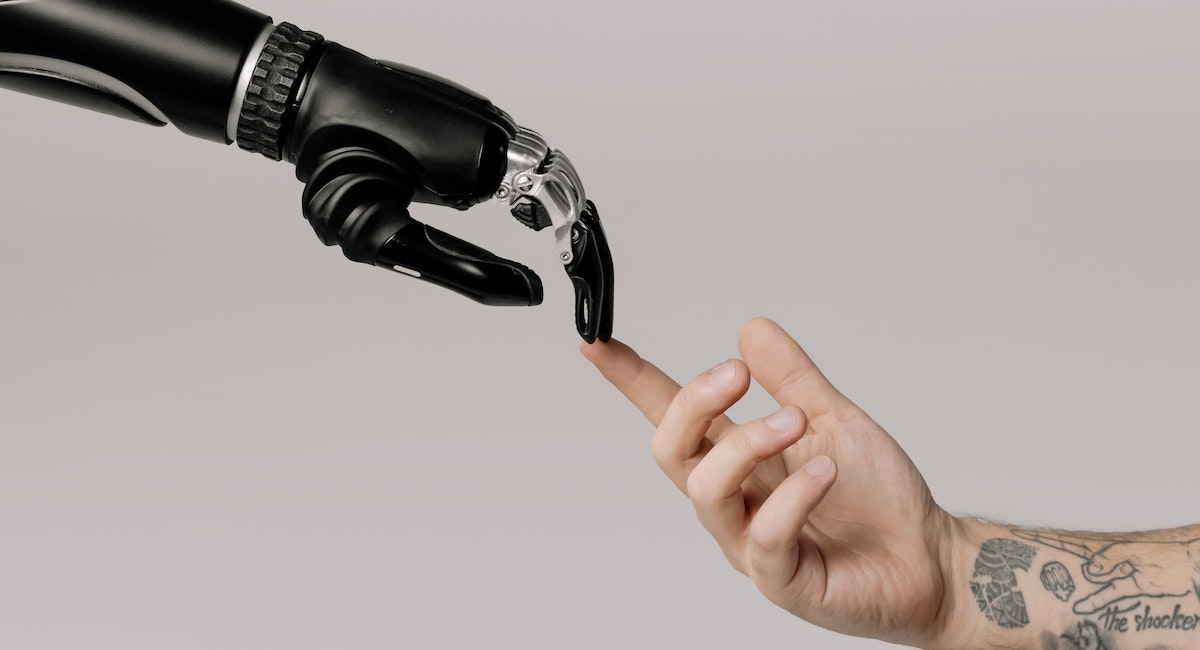What is Future of Artificial intelligence (AI)
Artificial intelligence (AI) is the ability of machines to perform tasks that are typically associated with human intelligence, such as learning, reasoning, and problem-solving. It is the intelligence of machines or software, as opposed to the intelligence of human beings or animals. AI is a rapidly growing field with applications in many different areas, including healthcare, transportation, manufacturing, and customer service. This article will explore the future of AI and its potential impact on our world (How artificial intelligence will change the future).

What is Artificial Intelligence (AI)?
Artificial Intelligence (AI) has been around for decades, but it’s only in recent years that we have seen a significant growth in its potential and application. AI is a rapidly developing field that is changing the world we live in and the way we interact with it.
The future of AI is very bright. AI is expected to have a major impact on society in the coming years, and it is already changing the way we live and work. Some of the potential benefits of AI include:
- Improved healthcare: AI can be used to diagnose diseases more accurately, develop new treatments, and provide personalized care to patients.
- Safer transportation: AI can be used to develop self-driving cars and other transportation systems that are safer than human-driven vehicles.
- More efficient manufacturing: AI can be used to automate tasks in factories, leading to increased productivity and reduced costs.
- Better customer service: AI can be used to provide 24/7 customer support that is more personalized and efficient than traditional customer service.
The Current State of AI
Artificial Intelligence is already a part of our daily lives. We see it in our smartphones, our smart homes, and our virtual assistants. AI is also being used in industries such as healthcare, finance, and transportation. AI-powered machines are being used to diagnose diseases, detect fraud, and improve traffic flow. However, despite the advancements in AI, there are still limitations to what it can do. Current AI technology is not yet capable of true human-level intelligence. AI is still limited by its inability to understand context and to adapt to new situations.
The Future of AI
Despite its current limitations, the future of AI is bright. Experts predict that AI will continue to evolve and become more sophisticated, capable of performing complex tasks that are currently difficult or impossible for humans. One of the most exciting developments in AI is the emergence of deep learning. Deep learning is a subset of machine learning that involves the use of neural networks to simulate the human brain. This technology is already being used in image recognition, natural language processing, and speech recognition.
Another area of AI that is rapidly evolving is robotics. Robots are being designed to perform tasks that are too dangerous or difficult for humans. For example, robots are being used to explore the depths of the ocean, to inspect infrastructure such as bridges and dams, and to perform surgeries. As robots become more sophisticated, they will be able to perform more complex tasks, such as building structures and farming.
Here are some specific examples of how AI is being used today and how it is expected to develop in the future:
- Self-driving cars: AI is being used to develop self-driving cars that can navigate roads without human input. This technology is still in its early stages, but it has the potential to revolutionize transportation.
- Virtual assistants: AI is being used to develop virtual assistants like Amazon Alexa and Apple’s Siri. These assistants can help us with tasks like setting alarms, playing music, and making calls.
- Medical diagnosis: AI is being used to develop systems that can diagnose diseases more accurately than human doctors. This technology is already being used in some hospitals, and it is expected to become more widespread in the future.
- Fraud detection: AI is being used to detect fraud in financial transactions. This technology is helping to protect banks and other financial institutions from fraudsters.
- Personalized education: AI is being used to develop personalized learning systems that can adapt to each student’s individual needs. This technology is helping students learn more effectively and efficiently.
The Impact of AI on the Job Market
One of the concerns about AI is its impact on the job market. As AI becomes more sophisticated, it will be able to perform tasks that are currently done by humans. This could lead to job losses in certain industries. However, experts predict that AI will also create new jobs and industries. For example, as robots become more common in the workplace, there will be a need for people to design, build, and maintain them. AI will also create new opportunities in fields such as healthcare, finance, and transportation.
Of course, there are also some potential risks associated with AI, such as:
- Bias: AI systems can be biased if they are trained on data that is biased. This could lead to discrimination against certain groups of people.
- Security risks: AI systems could be hacked or used for malicious purposes.
The Ethical Implications of AI
As AI becomes more sophisticated, it raises ethical concerns. For example, as robots become more common in the workplace, they may replace human workers, leading to job losses. This could lead to social and economic inequality. There are also concerns about the use of AI in warfare. Autonomous weapons could be developed that would be able to make decisions about who to kill without human intervention. This could lead to unintended consequences and could be difficult to control.
Another ethical concern is the potential for AI to be used for malicious purposes. For example, AI algorithms could be used to create fake news or to manipulate public opinion. There are also concerns about privacy and data security. As AI becomes more common, there will be more data available about individuals, which could be used for nefarious purposes.
Conclusion
Artificial Intelligence is a rapidly developing field that is changing the world we live in. While there are concerns about its impact on the job market and its ethical implications, the potential benefits of AI are significant. AI has the potential to improve our lives in ways that we cannot yet imagine. As AI continues to evolve, it will be important to address the ethical concerns and to ensure that its benefits are shared by all.
Also, Read More:



